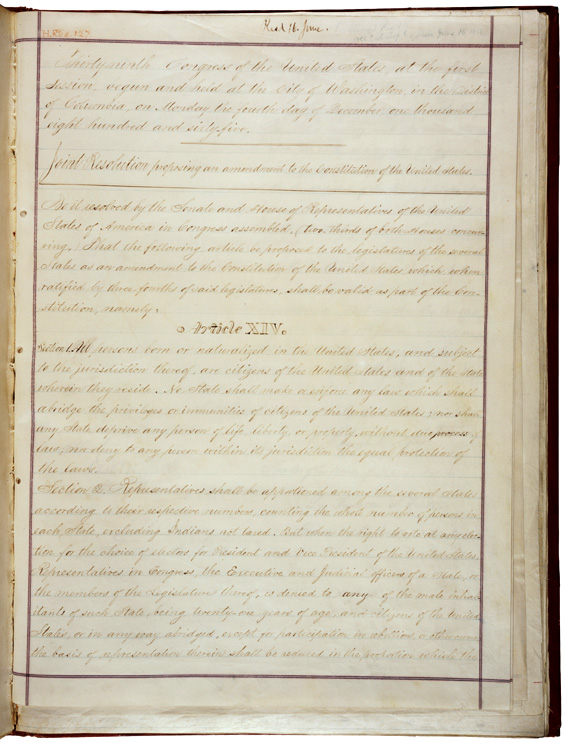Fourteenth Amendment to the Constitution of the United States forbids the states to deny any citizen the rights granted by federal law. It also defines how citizenship is acquired and declares that all citizens are entitled to equal protection of the law. The original purpose of the amendment was to provide citizenship for former enslaved people and to give them full civil rights. Amendment 14 took effect on July 9, 1868.

Through the years, the Supreme Court of the United States has interpreted the 14th Amendment in different ways. In 1905, the court used it in Lochner v. New York to strike down state laws regulating working hours. The court later reversed that decision.
The Supreme Court has applied the equal protection clause many times. In 1954, in Brown v. Board of Education of Topeka, the court ruled that racial segregation in public schools is unconstitutional. In 1971, the court declared in Reed v. Reed that no person may be denied equality before the law because of their sex. In 1973, in Roe v. Wade, the court ruled that states may not prohibit a woman, under certain conditions, from having an abortion. The court reversed that decision in 2022. In 1978, the court ruled in Regents of the University of California v. Allan Bakke that university admissions programs may not use quotas to achieve racial balance. In the 2015 case Obergefell v. Hodges, the court ruled that the right to marry is guaranteed to same-sex couples.
